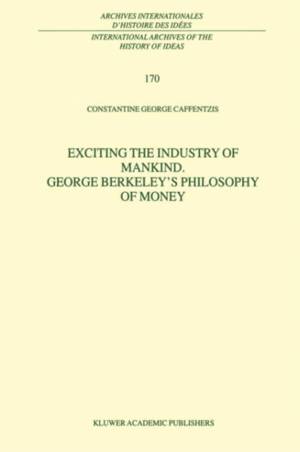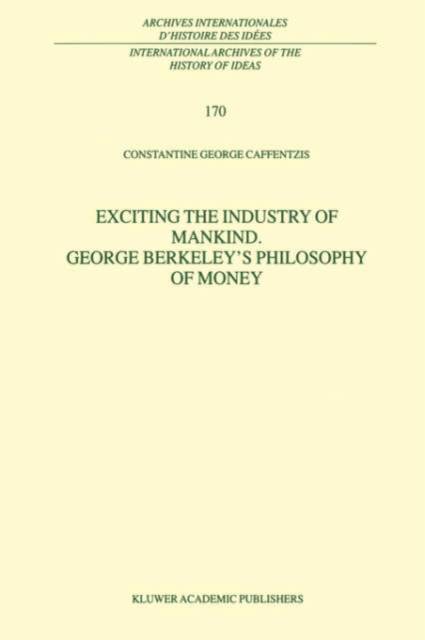
Bedankt voor het vertrouwen het afgelopen jaar! Om jou te bedanken bieden we GRATIS verzending (in België) aan op alles gedurende de hele maand januari.
- Afhalen na 1 uur in een winkel met voorraad
- In januari gratis thuislevering in België
- Ruim aanbod met 7 miljoen producten
Bedankt voor het vertrouwen het afgelopen jaar! Om jou te bedanken bieden we GRATIS verzending (in België) aan op alles gedurende de hele maand januari.
- Afhalen na 1 uur in een winkel met voorraad
- In januari gratis thuislevering in België
- Ruim aanbod met 7 miljoen producten
Zoeken
Exciting the Industry of Mankind George Berkeley's Philosophy of Money
C G Caffentzis
€ 209,95
+ 419 punten
Uitvoering
Omschrijving
Exciting the Industry of Mankind is the first comprehensive book about George Berkeley's revolutionary views on money and banking. Berkeley broke the conceptual link between money and metallic substance in The Querist, a work published between 1735 and 1737 in Dublin, consisting entirely of questions. Exciting the Industry of Mankind explains what economic and social forces caused Berkeley to write The Querist in response to a major economic crisis in Ireland.
Exciting the Industry of Mankind falsifies the view that Berkeley has nothing to tell us about our present and future social and economic life. For the `idealism' Berkeley found in the money form is now becoming a fact of global economic life, when `xenomoney' and `virtual money' exchanges begin to dwarf commodity transactions, and the future becomes the dominant temporal dimension of economic activity.
Philosophers, historians, cultural theorists, economists and lovers of Irish history will be interested in this volume.
Exciting the Industry of Mankind falsifies the view that Berkeley has nothing to tell us about our present and future social and economic life. For the `idealism' Berkeley found in the money form is now becoming a fact of global economic life, when `xenomoney' and `virtual money' exchanges begin to dwarf commodity transactions, and the future becomes the dominant temporal dimension of economic activity.
Philosophers, historians, cultural theorists, economists and lovers of Irish history will be interested in this volume.
Specificaties
Betrokkenen
- Auteur(s):
- Uitgeverij:
Inhoud
- Aantal bladzijden:
- 446
- Taal:
- Engels
- Reeks:
- Reeksnummer:
- nr. 170
Eigenschappen
- Productcode (EAN):
- 9780792362975
- Verschijningsdatum:
- 31/07/2000
- Uitvoering:
- Hardcover
- Formaat:
- Genaaid
- Afmetingen:
- 156 mm x 234 mm
- Gewicht:
- 816 g

Alleen bij Standaard Boekhandel
+ 419 punten op je klantenkaart van Standaard Boekhandel
Beoordelingen
We publiceren alleen reviews die voldoen aan de voorwaarden voor reviews. Bekijk onze voorwaarden voor reviews.









